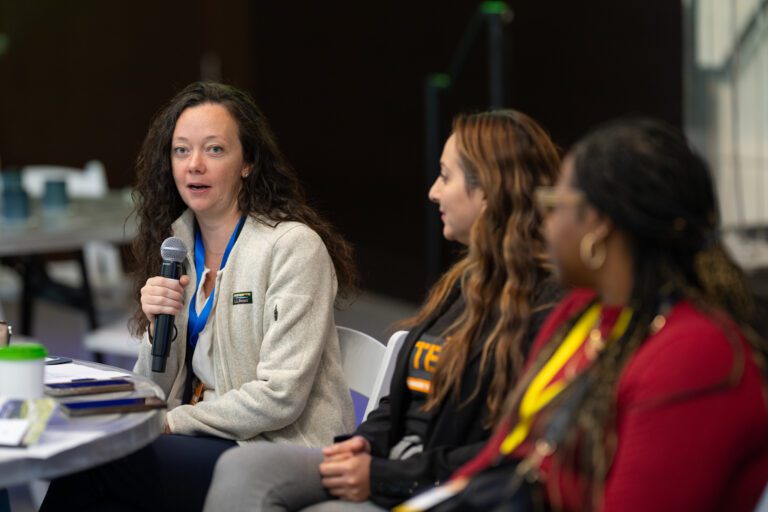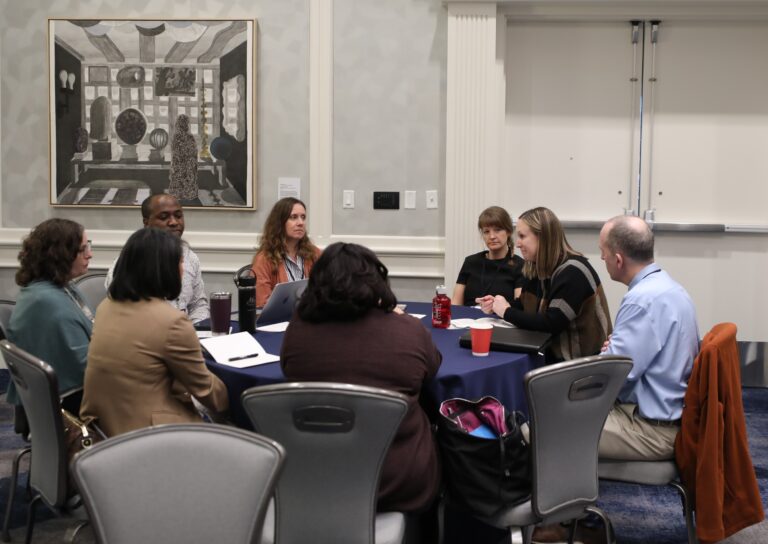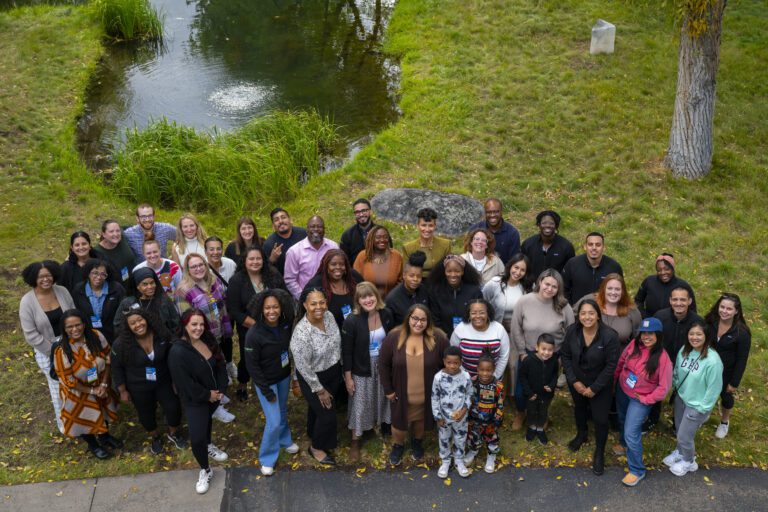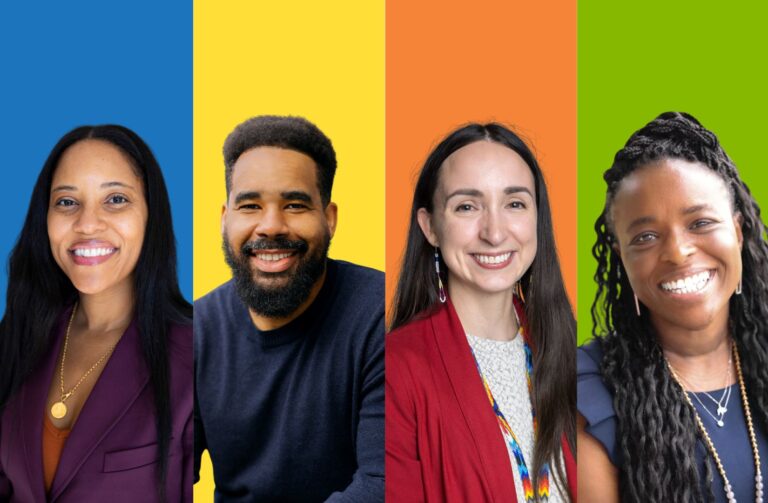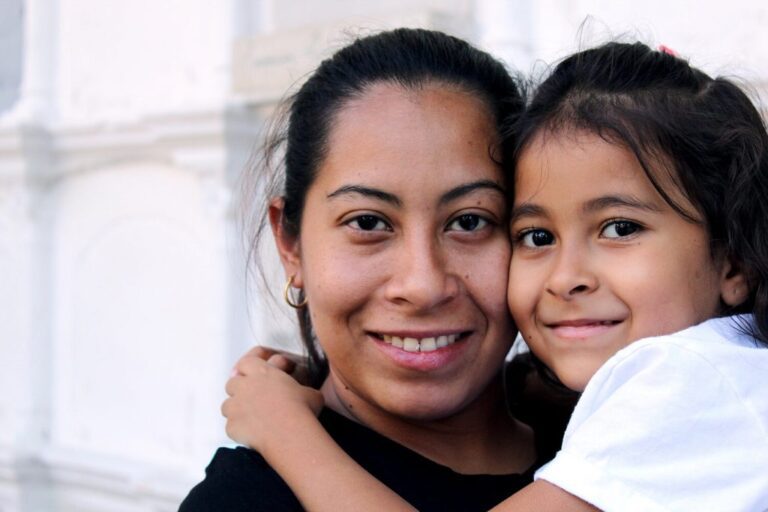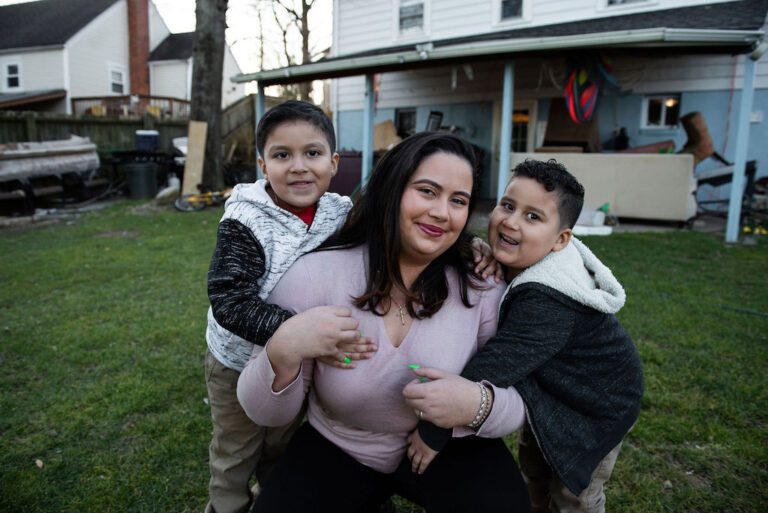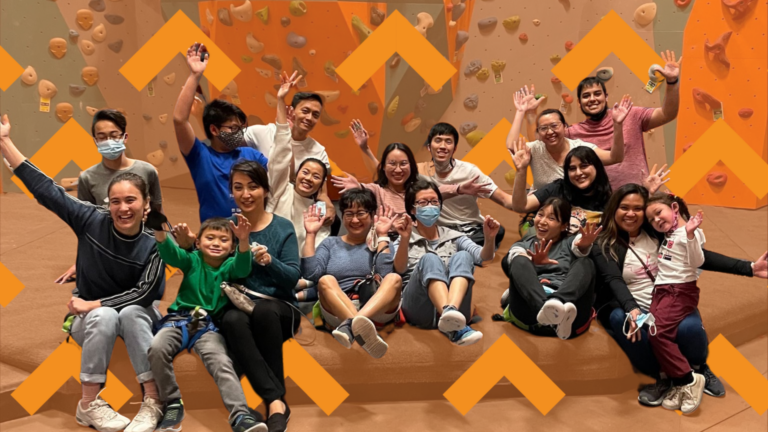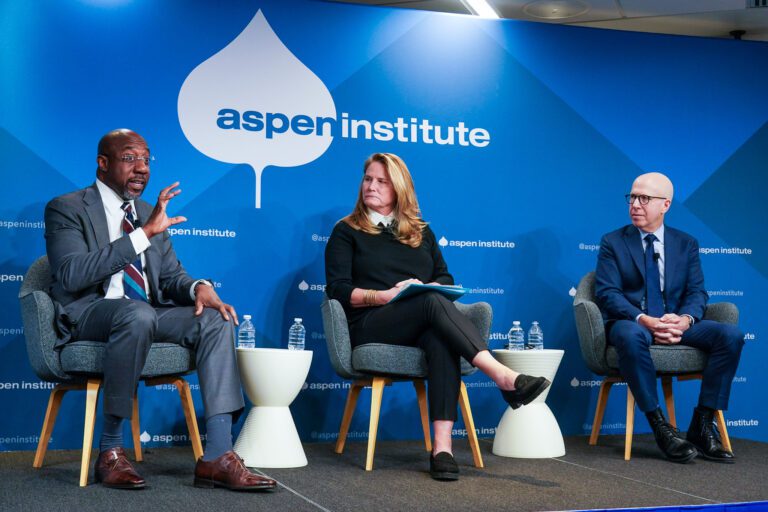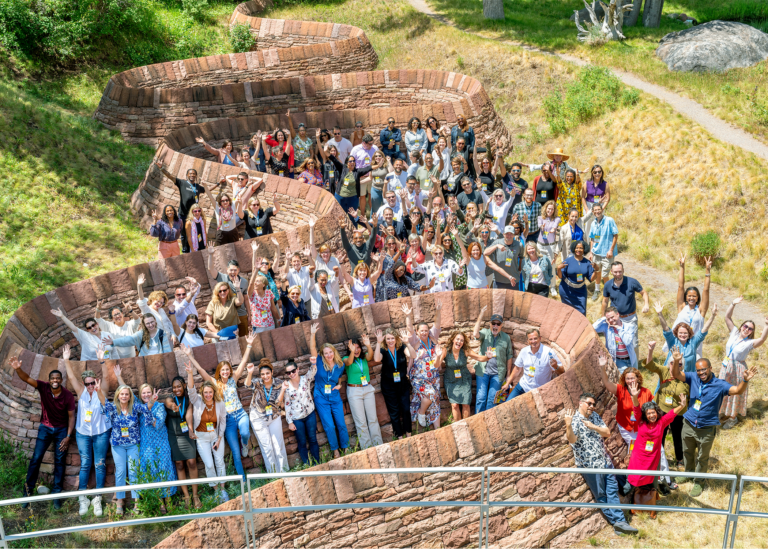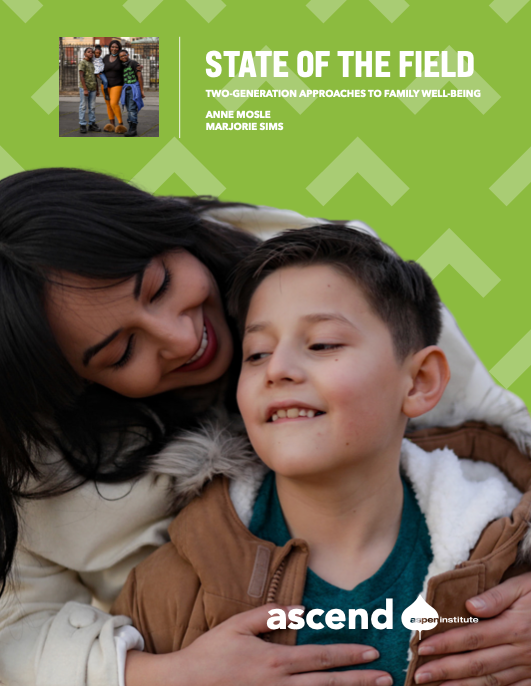State of the Field: Two-Generation Approaches to Family Well-Being
Ascend at the Aspen Institute releases State of the Field report on two-generation approaches to family well-being.
Washington, DC – A new report released today by Ascend at the Aspen Institute (Ascend) takes stock of the two-generation (2Gen) field. It analyzes what has been accomplished, the lessons learned, and the opportunities ahead with unprecedented federal expenditures in social policy. The report comes at a time when Americans are more fully recognizing that a system that tolerates social, racial, gender, and economic inequities is on unstable ground — and we are reckoning anew with the history of racism, sexism, and economic exploitation that built them into the foundation of our nation.
This resource is designed for policymakers, philanthropists, practitioners, researchers, and others interested in learning what the 2Gen approach has accomplished, why and how it has accelerated so quickly, and what different sectors can do to further its aims at a time when we are witnessing new and unprecedented energy and enthusiasm for bold change.
Accomplishments
The report illustrates major field accomplishments in the past decade:
- Advances in the application of brain science – especially with young parents of young children.
- Broad awareness and adoption of an equity-focused, family-centered approach to health and human services.
- A national network of close to 440 public, nonprofit, private, and philanthropic organizations serving 10 million children and families and cultivating and cross-pollinating 2Gen/whole-family innovation, implementation, and impact.
- Community of 80 Ascend Fellows advancing intergenerational economic mobility and well-being across sectors and systems, centered in racial and gender equity.
- Increase in public and philanthropic resources devoted to supporting families and children.
- Significant shifts and innovation in and across state systems.
- Transformation of providers’ mindsets from human services to human potential and anchor role of public agencies and funding.
- Radiation to and uptake in other systems and sectors.
- Practice of putting family expertise at the center of practice, policy, and philanthropy.
Insights
It articulates key insights that can be leveraged to drive further impact:
- Examining issues with a racial and gender lens reveals more equitable and effective solutions.
- Engaging with families authentically and responding to their expertise improves policies, practices, and systems.
- Fostering social capital yields currency that stimulates family economic mobility.
- Shoring up the foundations of mental health is essential to building family well-being.
- Taking a test-and-learn and co-design approach fosters evidence and innovation together.
- Innovating and incubating new ideas in states and counties works – and reveals practices and policy innovations that are ready to scale.
- Creating systematic opportunity and lasting systems change requires fostering equity-minded, values-driven leadership.
- Working with young parents of young children has a powerful multiplier effect.
Recommendations
The report concludes by calling attention to areas of opportunity and promising, bold directions for the future, which include actions and considerations for current and future 2Gen champions, policymakers, and philanthropists:
- Advance racial and gender equity
- Advance physical health and mental health
- Model and measure social capital’s impact on family outcomes
- Advance early childhood development, learning, and care
- Advance postsecondary and employment pathways
- Advance economic assets
- Work more effectively and equitably within and across agencies
- Elevate field capacity for using data, making continuous improvement, and evolving evaluation and rapid-cycle learning
“While a paradigm shift is within reach, there is also the risk that we will fail to meet the moment and simply pour more resources into the way we have always done things, because of failure of either imagination or implementation,” said Anne Mosle, vice president, Aspen Institute, and executive director, Ascend at the Aspen Institute. “We can’t let that risk become a reality. Our strategies for building prosperity and well-being for all children and families must be bold and equitable, but they must also be pragmatic, based on what we know works. Now is the time for us to think big.”
Ascend releases State of the Field: Two-Generation Approaches to Family Well-Being as part of the 2021 Aspen Forum on Children and Families.
Sample Social Media Posts
The State of #2Gen is a 10 yr review of strategies and solutions that accelerate family well-being. It offers equitable and effective ideas for building pathways so two generations, both children and their parents/ caregivers, can thrive together. Download today: /state-of-the-field-two-generation-approaches-to-family-well-being/
—
.@AspenAscend’s new report, “The State of the Field: Two-Generation Approaches to Family Well-Being,” includes:
- 10 yrs of #2Gen accomplishments breakthrough insights, and
- 28 recommendations to advance practice, policy, and systems change.
Media Contact:
Brendan Creamer
Communications Manager, Ascend at the Aspen Institute
Brendan.Creamer@aspeninstitute.org
Related Posts



